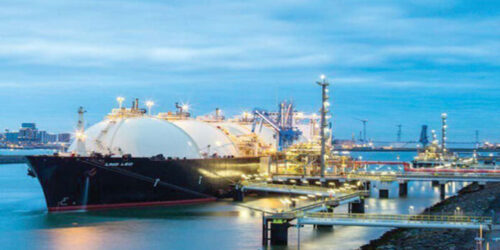Petroleum Division clarifies some facts of media reports on LNG procurement that roughly one-third of our monthly LNG purchases are on “spot” basis (and the remaining two-thirds on long-term contract basis) which is basically in line with global average for the LNG importing countries.
It is known that the “spot” LNG commodity price has spiked recently (to over $15 per MMBTU) due to a variety of supply-related issues (e.g. curtailment from Exxon’s facility in Papua New Guinea) and demand-related (higher in China & Japan due to warmer weather) factors. Therefore, PLL’s Board were forced to accept the 4 LNG “spot” tenders (at c. $15 per MMBTU price) for September 2021; otherwise, the replacement fuel (i.e. Furnace Oil), which is even more expensive, would have resulted in September power prices higher by at least 20%.
Moreover, if, due to RLNG shortage, we are forced to burn Diesel to fulfill summer power demand, the resultant incremental electricity generation cost in September would be almost 50% more expensive. So, it’s the lesser of the two evils.
Finally, if we don’t have enough RLNG in the system, the “opportunity cost” of forced gas load shedding for the industrial sector also has to be accounted for;
It also worth mentioning that crude oil prices are currently around $75 per barrel (and the price of imported coal has also increased by almost 45% since January this year), so the prices of most energy related commodities are on the upward trend due to (higher) demand & (limited) supply factors internationally as economies open up post Covid.
To the critics who question the “timing” of various spot LNG purchases, it is pertinent to mention that no one, without a crystal ball, can perfectly time or beat an international commodity market. There is also no evidence-based correlation between the spot purchase timing (i.e. earlier or later) and the actual price of LNG as it varies (up and down) from time to time due to a host of demand-supply factors.
As a matter of policy, Pakistan can opt for 100% long-term contract purchases (either on a fixed $ per MMBTU, or a fixed percentage of varying Crude Oil price), but even that would expose it to an “opportunity cost” should the spot prices fall at any stage due to any number of reasons. The government is, however, doubling down on its efforts to enhance local gas production by launching the next exploration & production bidding round, targeting high-potential “surrendered” and “under litigation” blocks, by the year end, InshaAllah.







